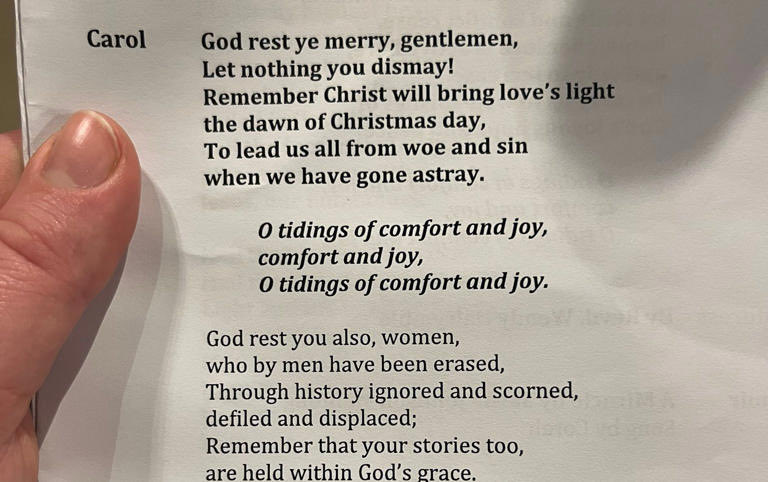Feminist historical narrative

The feminist historical narrative is an historical narrative widely believed by feminists and others. The feminist historical narrative is so pervasive that even many non-feminists accept it. It is largely built of lies, half-truths and oversimplifications. The feminist historical narrative covers many areas.
Ancient Matriarchy
The ancient matriarchy is a discredited view that ancient human cultures were matriarchal.[1] Some feminists claim that these ancient matriarchal cultures were taken over or defeated by aggressive patriarchal cultures and that evidence of the past matriarchy was systematically hidden by The Patriarchy.[2][3]
Some proponents of ancient matriarchies have claimed that ancient human cultures did not understand the connection between sexual intercourse and pregnancy.[4][5][6][7] Modern research has completely debunked this. There are no known human cultures, today or in the past, that did not know of the connection between sexual intercourse and pregnancy.
The notion of the ancient matriarchy was invented by Johann Jakob Bachofen and then further developed by other 19th-century European men. The ancient matriarchy is a variant of the now-discredited notion of the noble savage, which is also widely considered to be racist.
The ancient matriarchy was popular among feminists from the 1970s to the 1990s. Most feminists today that have heard of it are aware that it is untrue, although they are often unaware of its origins.
Any society claimed to be matriarchal is some combination of matrifocal, matrilineal and matrilocal.
Oppression
Feminists argue that women have historically been systemically oppressed by men. This is at the centre of much of the outrage that feminists exhibit.
Feminists tend to disagree on how long this apparent oppression went on for. Some say it lasted for a few thousand years while other argue it has existed as long as humans have existed. The narrative goes on to claim that women were freed by feminists during the 20th century although they also often claim that women still need to be freed from the Patriarchy. The prevalence of women in the public sphere throughout history clearly shows falsity of this claim.
History is replete with examples of women that were allowed to adopt male roles when they wanted to. It may be that these women were perceived by contemporary men as being particularly competent.
Some feminists have even gone on to claim that women were slaves throughout history. Claims that women could not own property or did not have any rights are more common. These claims, to the extent that they were ever true, can also be examples of the Victorian fallacy.
Here X user Tigerfly Free claims that women were slaves until two generations ago.[8][9]
Misogyny
Feminists tend to argue that misogyny has a mainstay of history. In reality views of women as a group have varied widely around the world and throughout history. Medieval Europe regarded women as morally superior to men. This view has carried over in to modern Western society.
Patriarchy
In the West children inherit their father's name because the society was historically patrilineal not patriarchal.
The feminist claim that Patriarchy hurts men too is an oxymoron. Any Patriarchy that did not benefit men would be dysfunctional. This claim is just a response to MRAs and others successfully raising men's issues.
Sex
Sex
Many feminists assert that women were only allowed to enjoy sex relatively recently. A review of history around the world demonstrates that this is false.
Cultures around the world and at different times have varied widely in their approach to female sexuality. Many historical societies, including Western Europe during the Middle Ages, argued that women have higher libidos than men. Some also believed that women experience more pleasure from sex as the ancient Greek story of Tiresias demonstrates.
Suffrage
Feminists often imply that universal male suffrage existed for a long period before universal female suffrage.
In general nations that became independent during the 20th or 21st centuries granted universal suffrage to men and women at the same time. In nations that became independent before the 20th century men typically led women by a few years or decades in obtaining suffrage. Even a few decades should be seen as a short period of time given that human political thought has been developing for at least 5000 years.
Wealth and Power
Wealth and power possessed by women relative to men has varied around the world and throughout history. This can be seen when comparing comtemporary Greek city states like Athens and Sparta. A strong case can be made that Athenian women had limited political and economic rights compared to Spartan women. These were just two polities in one region.
Work
See Also
External Links
Further Reading
- ↑ https://www.smithsonianmag.com/history/amazon-women-there-any-truth-behind-myth-180950188/
- ↑ http://www.straightdope.com/columns/read/2742/earth-mother-has-there-ever-been-a-true-matriarchal-culture
- ↑ http://www.mother-god.com/matriarchy.html
- ↑ http://www.colorado.edu/wrc/2015/02/13/history-patriarchy
- ↑ https://archive.is/zmh7y
- ↑ https://www.theguardian.com/news/2018/jun/22/the-age-of-patriarchy-how-an-unfashionable-idea-became-a-rallying-cry-for-feminism-today
- ↑ https://archive.is/NcHVT
- ↑ https://twitter.com/tigerfly22/status/1767294668801519766
- ↑ https://archive.is/wip/V96ub
